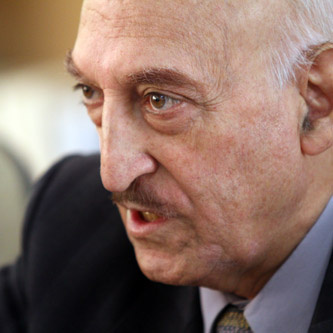Job Creation, or Distrust in the Foreign Ministry

Following this increase in personnel, the Foreign Ministry was divided into different offices. For example, the Arab Middle East was divided into Africa, Persian Gulf countries, and the Arab Crescent counties. We even sent ambassadors and diplomats to countries where we did not have any economic and financial interests.
People who took these new positions in the Foreign Ministry were mainly engineers who were not familiar with foreign languages or diplomatic customs. Even though these inefficiencies were worked on in order to improve the functioning of the ministry, they actually greatly decreased its power.
Evidently one of the methods through which diplomats can gain information in a country is through other diplomats. But since Iranian diplomats were not efficient in foreign languages they could not attend meetings in which diplomats from different countries exchanged information. Hence they were incapable of gaining valuable information, and the reports that were sent to Tehran were often just the translations of a few articles from local newspapers. In addition, the relations between the ambassador and officials in the host country are very important, which was negligible in the case of Iranian ambassadors. However the ambassadors interpreted these inefficiencies as revolutionary pride.
A few years after the revolution Foreign Ministry officials realized the immensely illogical organization of their ministry. During his time at the ministry, Kamal Kharazzi, tried to reduce the size of this apparatus but his attempts were confronted with obstacles and the desired result was not realized.
Nevertheless, it seems that we have not gained any experience from the past, and we still appoint people who have no knowledge of international affairs to positions in this ministry. The appointment of Mr. Saidlou as a foreign affairs aide to the president-- someone has no experience in international affairs-- is a reminder of our weak points at the beginning of the revolution. In other words, the appointment of people who have no knowledge of international affairs for the mere purpose of providing them a prestigious post only inflicts damage on our foreign policy.
Moreover the establishment of an international deputy by the president is an irregular act. In other countries the president has a national security consultant which is the national Security Council, but the appointment of an international deputy while the Foreign Ministry is responsible for this professional job is worth the contemplation.
This division more than anything else shows the lack of trust in the organization that is officially responsible for managing foreign affairs. Prior to this act the president had shown his distrust by appointing special representatives for Asia, Middle East and etc. This international deputy will turn into an organization which needs experts in international affairs to work for it; which only results in parallel working. In other words another organization besides the Foreign Ministry will have the power to decide upon foreign relations based on its own understanding. This is both a mundane process and a confused one as well. It is not clear which organization will be given priority in case any disagreement occurs between them.
This procedure is unprecedented in other countries, where smaller ministries are formed under the direct supervision of the president.
The reason behind this appointment could be that the president might have thought that he could get rid of the supervision of other organizations. Nevertheless the president is free in choosing the approach of this organization and no other high ranking official or the parliament can intervene in this process. Moreover this could bring the president more freedom in international issues.

